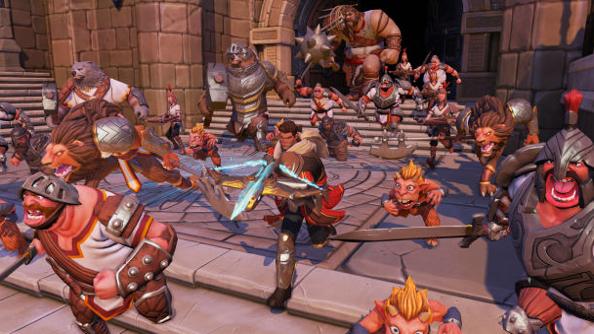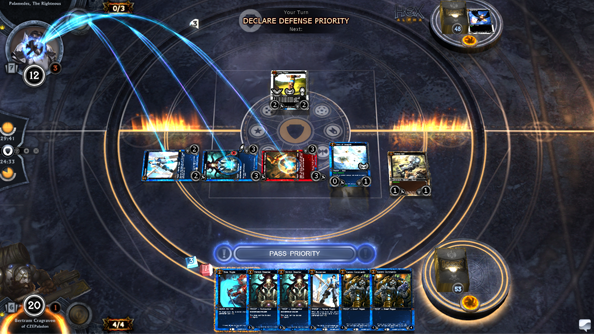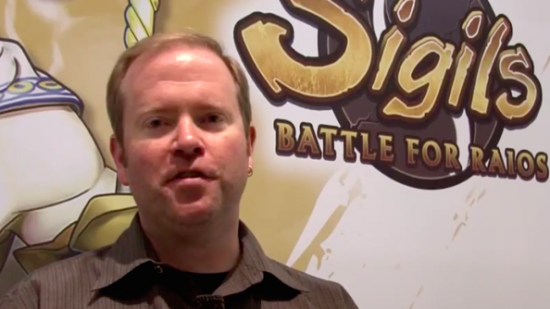The last ten years have seen the rise of free to play, DLC, and limited game activations. They span the whole games industry but they were born out of a problem for console developers. “The most successful games,” Gameforge vice president Tim Campbell tells me, “they only charge $60 but someone plays them for 1,000 hours.
“It’s like ‘Holy cow, you pretty much gave away a ton of game to people’.”
I was recently at a Gameforge showcase in London, seeing the single player arena added to Hex: Shards of Fate and the latest changes to Orcs Must Die! Unchained, when I had the chance to talk to Tim Campbell.
Previously vice president at THQ, Campbell joined free to play publisher Gameforge back in 2010. If there’s anyone who can talk about why free to play’s taking over the industry and the backlash against it, it’s him.
“There’s been a dramatic shift that’s been happening in the Western hemisphere about the gaming business in general,” Campbell explains. “There’s way more platforms now, more business models, the console business isn’t as dominant as it once was. For a lot of gamers out there it’s out with the old and in with the new and for some gamers it’s uncomfortable: they like going to Gamestop and buying a game for $10 and playing forever.”
It certainly didn’t help that “some games publishers have put out are bad examples of free to play,” Campbell says. “[They’ve] created situations where they’ve overcharged or misbalanced and then players have gone on Youtube and plastered out there ‘This is what’s wrong with the universe.’”
But free to play solves a problem the console industry has been suffering from for decades. “The business was kind of collapsing in on itself [because] you had to take all this up front risk as a publisher” Campbell recalls. “Then, if people don’t buy your game when it goes in retail shops, it goes to Gamestop and gets sold as used over and over and over again and you, as a publisher who paid 30, 50, or $100 million to make that game, you don’t get to participate in any of that used revenue.”

Failed games weren’t the only trouble.
“The most successful games, they only charge $60 but someone plays them for 1,000 hours.” Campbell says. “It’s like ‘Holy cow, you pretty much gave away a ton of game to people’. With the development risk that you have to take in making these big games, publishers were scratching their heads thinking ‘How can I come up with revenue that allows me to get the development financing to make another cool game’.
“It was a real problem we were dealing with all the time.”
It’s disconcerting to hear a publisher describe a game someone wants to play for 1,000 hours is a missed opportunity but, from a financial perspective, it makes perfect sense. Why would a publisher invest in huge games when they can charge just as much for a shorter, cheaper game?

Campbell sees free to play as one of the solutions to the problem, something that encourages publishers to fund the development of larger games. And one that encourages players to try a wider spread of games, considering the price of entry’s been removed.
It’s why, along with MMOs like Tera and Aion, a genre we’ve come to expect to be free to play, Gameforge are beginning to publish games like the Magic: The Gathering-inspired Hex: Shards of Fate,the new Orcs Must Die! game, and Skill, a Counter-Strike clone. Gameforge are experimenting with how these genres can be adapted to a payment model that better sustains the development.
That’s not to say it’s without benefit to the players; “Free to play is a way to allow everyone who’s playing the game to pay what they want,” CAmpbell says. “Some people will just pay with their time, some people will pay a little money, some people will pay a lot of money. It’s a fair system because the power’s in the players’ hands.”
